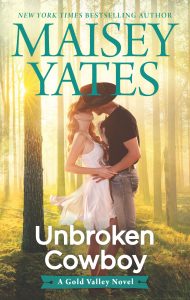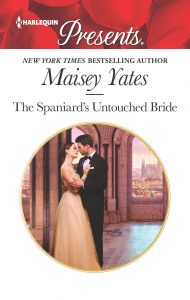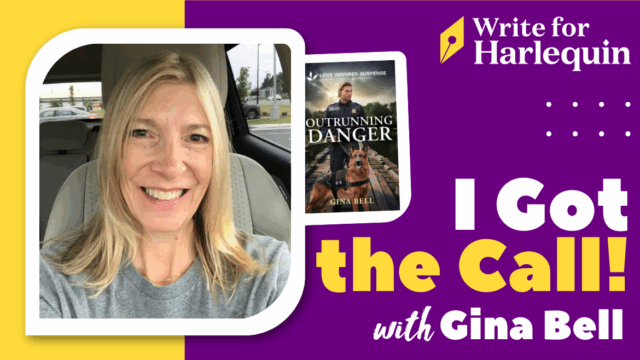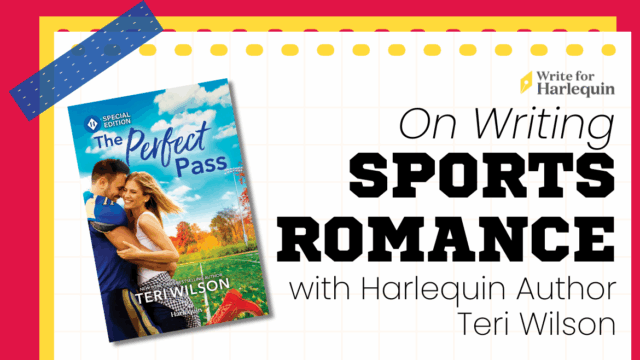

Today, we have an exciting post from New York Times and USA TODAY bestselling author Maisey Yates! Maisey has written an astounding 100 books, and writes a real range of books – and it all began with Harlequin Presents. In this post Maisey talks about how to keep your writing fresh, and how she flexes her writing style from writing 50k word Harlequin Presents to longer single titles, her heroes ranging from rugged cowboys to mysterious millionaires! 
My very first love as a romance reader was Harlequin Presents. Those slim books pack such a punch of emotion that begins on page one, and doesn’t let up until the end.
Because I loved these books so much as a reader, they were, somewhat unsurprisingly, the first romances I decided to try and write.
I was consumed with my love for them, reading them, writing them, but after I’d written twenty or so I started to want to flex my writing muscles a little bit. I still loved them, but I wanted to see what else I could do.
At first I was really scared. What if doing something different made me unlearn everything I’d learned about writing Presents? I knew how to write books that were 50K words, but if I tried to write something longer would I forget?
Then there was the simple fact that I didn’t like feeling like a novice again. I’d gotten to where I felt comfortable with what I was doing, and learning something new felt like….well it felt like learning.
It’s been a few years now since I began to branch out, and I’ve learned a lot. Now I routinely write 30K word novellas, 50K word category books and 95K word single titles. I’ve written shorts that were 10K. I’ve done group projects. I’ve written about bikers, cowboys and billionaires. And in everything I’ve done I’ve learned.
So here are a few tips from me on diversifying your writing:
- It’s okay if you feel like you don’t know what you’re doing.
In fairness, this is something I still struggle with after writing 100 books. I like being in my comfort zone. And anything that feels OUTSIDE OF IT can often feel wrong. But you have to be willing to wade into those uncertain waters if you want to grow as a writer.
- Don’t limit yourself.
This is a companion to point one. I think it’s often easy to look at this narrow piece of experience you have as a writer and say: this is what I do! This one thing! Billionaires, cowboys, short books, long books. But we’re writers. We can create so much more than we think. Don’t be afraid to try new things. You might end up loving them! I didn’t think I’d enjoy writing small town romance and avoided it at first, and it’s now become something I absolutely love.
- Learn your craft.
Ready for the worst writing secret ever? There is no one method of writing that works for all writers. There is no one craft book that will make all things crystal clear. For some, character sheets work. For some it’s about finding the GMC (Goal, Motivation and Conflict) and writing it all out.
I’m someone who doesn’t read craft books, can’t make a beat sheet work and I want to fall asleep every time someone tells me to find my GMC. But that doesn’t mean I haven’t learned craft. My books still NEED goal, motivation and conflict. They still need three dimensional characters. But the methods that work for me…work for me. And knowing what does work has helped me demystify my process.
The great thing about not finding my process magical is…I know I don’t have to wait for magic. And now that I know the parts I need to construct a book, I can take those materials with me to a variety of different building sites, so to speak.
- When it comes to writing different lengths, the size of the conflict between your characters is key.
This is where understanding the mechanics of writing is very, very helpful!
In a longer book I can tackle larger conflicts. I can take two strangers and put them together, give them huge obstacles — internal and external — and have a legion of family members and friends help them navigate their relationship.
In a 50K word Harlequin Presents they have to navigate it pretty much on their own. The conflict in a Presents is mostly internal and the page time is devoted mostly to the hero and heroine. It’s what allows you to create a satisfying read in under 200 pages.
In a novella it helps when they already know each other (you can definitely write them where they don’t, but it really helps keep the word count down when they do). I also find it best not to tackle anything too knotted to untangle in 25K-30K words.
- Find your core story.
Your core story is the deep emotional themes at the center of your work. My books might have many different top layers, but at their very heart they have some basic common themes. That love is redemptive, and that everyone deserves to be loved in their brokenness. That is an essential element of my ‘core’ story. You find that personal truth of mine at the heart of all my books. Once you know yours, you can carry it with you to all different types of stories.
It’s not the superficial elements that make a story ours. It’s deeper than that.
- How do you keep it fresh?
I’ve just finished my 100th book, and for me it all comes down to character. There are as many ways to write a romance as there are to fall in love. It’s the people that make each story different and interesting. If you know your characters and you let them drive the story, you’ll come up with something unique every time.







